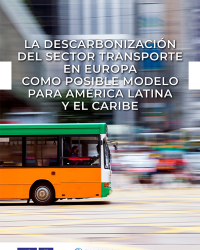Búsqueda por categoría
Contributions of indigenous peoples to climate action in Latin America: Experiences in the forests, biodiversity and ecosystems sector
700 Downloads
 The EUROCLIMA+ programme projects in the “Forests, Biodiversity and Ecosystems” (FBE) sector are implemented, in most cases, in regions with indigenous populations. Many of the implementing entities of these projects have extensive experience and knowledge of the problems of indigenous peoples and the promotion of their rights. Similarly, some of these entities have been working with indigenous peoples and local communities for a long time, collecting and systematizing their knowledge on vulnerability to climate change, in addition to identifying climate change mitigation and/or adaptation solutions that are currently being implemented, or finding new solutions together.
The EUROCLIMA+ programme projects in the “Forests, Biodiversity and Ecosystems” (FBE) sector are implemented, in most cases, in regions with indigenous populations. Many of the implementing entities of these projects have extensive experience and knowledge of the problems of indigenous peoples and the promotion of their rights. Similarly, some of these entities have been working with indigenous peoples and local communities for a long time, collecting and systematizing their knowledge on vulnerability to climate change, in addition to identifying climate change mitigation and/or adaptation solutions that are currently being implemented, or finding new solutions together.
| Category: | Serie Documentos técnicos |
| File Size: | 5.16 MB |
| Hits: | 7262 Hits |
| Download: | 700 times |
| Título: | Contributions of indigenous peoples to climate action in Latin America: Experiences in the forests, biodiversity and ecosystems sector |
| Autor: | Iván Égido |
| Año: | 2022 |
| Autor institucional: | GIZ, Expertise France |
| Catálogo: | MN-BK-21-003-EN-N |
| Formato: |






